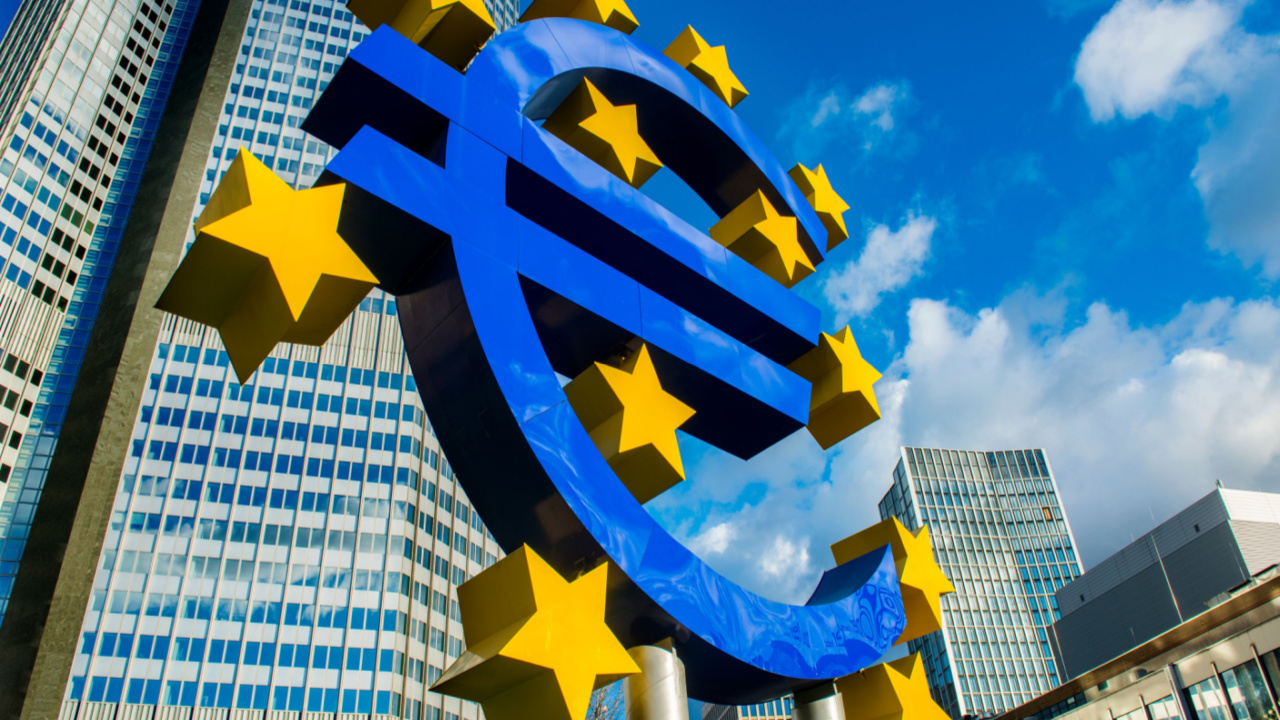 Power needs of cryptocurrency miners in Russia have grown significantly since 2017, with consumption of electrical energy seeing a 20-fold increase over the five-year period. In 2021, the minting of the coin with the largest market cap, bitcoin, required 1.25 gigawatts in the country. Experts say, however, that Russia has the spare capacities to satisfy […]
Power needs of cryptocurrency miners in Russia have grown significantly since 2017, with consumption of electrical energy seeing a 20-fold increase over the five-year period. In 2021, the minting of the coin with the largest market cap, bitcoin, required 1.25 gigawatts in the country. Experts say, however, that Russia has the spare capacities to satisfy […] A task force in Nepal has proposed legal changes allowing the country’s central bank to issue its own digital currency. The move comes after a study indicated that such an initiative is feasible and recommended certain provisions that would authorize the regulator to proceed with its realization. Nepal Central Bank Prepares Legal Ground for National […]
A task force in Nepal has proposed legal changes allowing the country’s central bank to issue its own digital currency. The move comes after a study indicated that such an initiative is feasible and recommended certain provisions that would authorize the regulator to proceed with its realization. Nepal Central Bank Prepares Legal Ground for National […]
A new study shows that US crypto investors falling in the lowest income bracket were the primary group of sellers during the market rout witnessed in recent weeks. The study conducted by consumer insights platform Civic Science reveals that 65% of US digital asset investors earning $50,000 or less sold all or some of their […]
The post Majority of US Adults With Income of $50,000 or Less Sold Crypto Holdings During Market Collapse: New Study appeared first on The Daily Hodl.
 A group of economists evaluating the potential effects of a digital euro have insisted that restricting access to the upcoming currency is necessary to preserve the current financial system. Their study follows an earlier proposal to limit digital euro deposits at the European Central Bank (ECB) to €3,000 per person. Limited Availability of Digital Euro […]
A group of economists evaluating the potential effects of a digital euro have insisted that restricting access to the upcoming currency is necessary to preserve the current financial system. Their study follows an earlier proposal to limit digital euro deposits at the European Central Bank (ECB) to €3,000 per person. Limited Availability of Digital Euro […] Russia could be a large player in the crypto mining space, experts in the field have established in research naming the most attractive regions for coin minting operations in the country. The capital Moscow is among the popular mining destinations alongside the places offering the cheapest power. Cost of Electricity, Logistics Determine Russian Miners’ Choice […]
Russia could be a large player in the crypto mining space, experts in the field have established in research naming the most attractive regions for coin minting operations in the country. The capital Moscow is among the popular mining destinations alongside the places offering the cheapest power. Cost of Electricity, Logistics Determine Russian Miners’ Choice […]
Factors considered to calculate a country’s readiness were the number of crypto ATMs proportional to the population and geographical size and the number of blockchain startups per 100,00 people.
While public acceptance remains key to crypto’s existence, the road to mainstream crypto adoption requires governments to set up a supporting infrastructure that complements the requirements of the technology and the people.
Factors such as crypto ATM installations, pro-crypto regulations, startup culture and a fair tax regime signal a country’s readiness to adopt cryptocurrencies. Considering these factors, a Forex Suggest study revealed Hong Kong’s position as the best-prepared country for widespread cryptocurrency adoption, with a crypto-readiness score of 8.6. Despite having a bigger crypto infrastructure than the island nation, the United States and Switzerland made it to the top three with lower crypto-readiness scores of 7.7 and 7.5, respectively, as shown below.

The biggest factors considered in the study to calculate a country’s readiness were the number of crypto ATM installations proportional to the population and geographical size of the jurisdiction and the number of blockchain startups per 100,00 people. As a result, Hong Kong’s smaller land mass helped the country top the list.
CoinATMRadar data shows that the U.S. houses 88% of the global crypto ATM installations. On the contrary, Hong Kong installed a network of 146 crypto ATMs, representing just 0.4% of crypto ATMs worldwide. Owing to the smaller area, Hong Kong residents are never more than 4.3 miles (7 kilometers) away from a crypto ATM.

On the other hand, Switzerland has a crypto ATM every 161.5 miles (260 km), while the U.S. has installed crypto ATMs every 168.3 miles (271 km).
Crypto taxes serve as the biggest deterrents to mainstream crypto adoption. Hong Kong, Switzerland, Panama, Portugal, Germany, Malaysia and Turkey share the top spot for the lowest crypto taxes on capital gains.

A country’s efforts to nurture a growing crypto infrastructure depend heavily on investor sentiment. That being said, investors from major economies like Australia, Ireland and the United Kingdom have shown the highest interest in cryptocurrencies, signaling healthy pro-crypto competition around the globe.
Related: Opera Crypto Browser integrates Coin98 to bolster Web3 accessibility in Southeast Asia
Opera Crypto Browser doubled down on its effort to improve Web3 accessibility by announcing a partnership with Coin98, a Southeast Asia-based decentralized finance (DeFi) platform, to bolster Web3 accessibility.
By integrating Coin98, Opera’s Crypto Browser will be able to tap into the platform’s range of multichain nonfungible tokens (NFTs), decentralized exchanges (DEX), cross-chain bridges and asset swaps, as well as the ability to stake and lend their cryptocurrency portfolios, as per a Thursday announcement.
 A new report is predicting that the total value of the NFT market will reach $200 billion in 2030. The report, issued by Grand View Research, a multinational market insights company, found that the rising demand for this kind of instrument — due to its growing number of applications — will fuel growth of the […]
A new report is predicting that the total value of the NFT market will reach $200 billion in 2030. The report, issued by Grand View Research, a multinational market insights company, found that the rising demand for this kind of instrument — due to its growing number of applications — will fuel growth of the […] On July 13, the dedicated crypto price tracking, volume, and market capitalization web portal Coingecko published the company’s “Q2 2022 Cryptocurrency Report” which discusses the last quarter’s crypto market action and insights. The 46-page report explains how the Terra UST and LUNA fallout wreaked havoc on the entire crypto ecosystem and the stablecoin economy. Moreover, […]
On July 13, the dedicated crypto price tracking, volume, and market capitalization web portal Coingecko published the company’s “Q2 2022 Cryptocurrency Report” which discusses the last quarter’s crypto market action and insights. The 46-page report explains how the Terra UST and LUNA fallout wreaked havoc on the entire crypto ecosystem and the stablecoin economy. Moreover, […]
Offenders that use cryptocurrency for illegal activity in Australia are more likely to receive a tougher sentence.
Criminals that used cryptocurrency as part of committing a crime are more likely to receive a tougher sentence in Australian courts, a new study has found.
The study, titled “Crime and Cryptocurrency in Australian Courts,” published on Monday in the Monash University Law Review, found that the use of cryptocurrency in criminal activity was seen as indicating an increased “degree of planning” and sophistication, leading the court to “consider general deterrence above other sentencing purposes:”
“Obtaining and using cryptocurrency for payments does require a greater degree of technical skill compared to the general population which may be unfamiliar with these payments.”
The study analyzed 103 cases presented to Australian courts between 2009 and 2020, with specific focus on 59 criminal cases and their sentencing procedures.
Study authors Aaron Lane and Lisanne Adam found that Aussie courts broadly perceive crypto use as being indicative of “technical sophistication” and “intentional obfuscation.”
However, the pair argued that Aussie courts may be “too eager to adopt a relatively simplistic characterization” of crypto use in criminal activity, arguing that not all crypto use can signify the same level of sophistication:
“Sophistication exists on a spectrum.”
Courts must be able to differentiate between the different types of crypto transactions used by perpetrators, especially as the wider adoption of digital assets continues to grow.
Perpetrators that used centralized digital currency exchanges — where Know Your Customer (KYC) requirements mean that identification can be readily obtained — cannot be treated similarly to offenders that intentionally use anonymous noncustodial wallets or mixing services to obscure transaction data.
Cryptocurrency and digital assets have a long-standing reputation by some in the public realm as being linked to illegal activity, most likely stemming from Bitcoin’s initial association with the infamous darknet black market Silk Road.
While this negative association still looms over the digital asset industry, the amount of crypto used for illicit activity has never been lower, according to a recent report from CipherTrace.
The report estimated that illicit activity was between 0.62% and 0.65% of overall cryptocurrency activity in 2020 and has since fallen to between 0.10% and 0.15% of overall activity throughout 2021.

Access to CBDCs reduces banks’ need to insure against liquidity risks and gives policymakers greater information about trouble in the financial system, according to the study.
The introduction of a central bank digital currency (CBDC) may increase the stability of a banking system, according to a paper released Tuesday by the United States Treasury Office of Financial Research.
This finding counters concerns that a CBDC may encourage runs on weaker banks.
According to the July 12 paper, researchers often claim that the public may in times of financial stress “pull funds out of banks and other financial institutions” meaning that a “CBDC could make runs on financial firms more likely or more severe.”
The authors however argued that a well-designed CBDC can mitigate that risk, and also offered two arguments that favored the role of CBDCs in increasing financial stability.
First, the authors created a mathematical model in which banks performed maturity transformation, that is, they borrowed money for shorter periods than they made loans for, to insure against liquidity risk. This could create financial fragility in case of an adverse event, and that could lead to a bank run.
In the authors’ model, however, access to a CBDC “intuitively” makes “experiencing a liquidity shock” less costly to depositors, so banks can provide less insurance against this risk. Thus, a CBDC leads to greater stability of the financial system.
“In this way, the adjustments in private financial arrangements in response to a CBDC may tend to stabilize rather than destabilize the financial system.”
The second argument was based on a so-called information effect. Banks in weak positions may try to hide that fact from regulators to avoid intervention. Hiding unfavorable information could also make the crisis worse because of delayed response.
Related: BIS: 90% of Central Banks are researching the utility of CBDCs
However, the nature of CBDCs will allow policymakers the ability to identify situations where funds are being converted, and not simply withdrawn from a bank — thus spotting problems sooner which can lead to a faster resolution.
“By allowing a quicker policy reaction to a crisis, this information effect is another channel through which CBDC may tend to improve rather than worsen financial stability.”
The authors point out that other researchers have suggested imposing caps, fees or other restrictions on CBDC during crises. The authors argue against this approach, noting:
“Policies that limit the use or attractiveness of CBDC risk losing many of its potential benefits as well.”
They also argue that the benefits of the greater information available to policymakers in the presence of a CBDC may have a variety of beneficial uses.